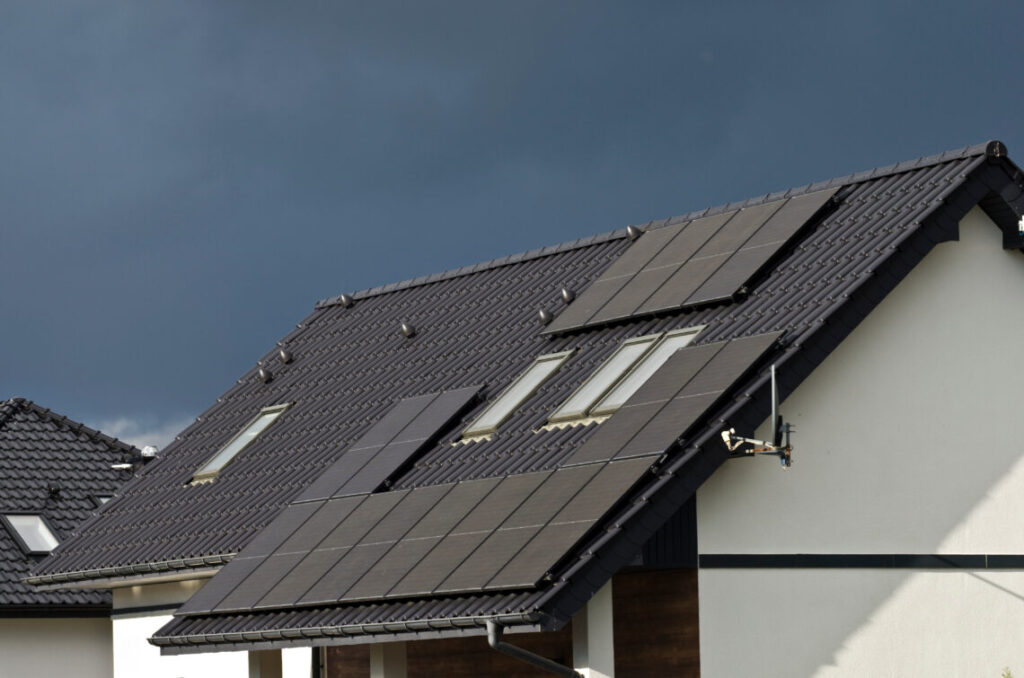Do Solar Panels Work on Cloudy Days?
November 13, 2024

Key points
Solar panels work on cloudy days — they just don’t absorb quite as much energy as they do on sunny days.
Cloud coverage can impact the amount of energy that solar panels absorb and store. However, in some cases, solar panels are more effective in places with plenty of sunshine but not high heat, said James Fenton, the director of the University of Central Florida’s Solar Energy Center in Orlando, Florida.
Given that the average cost to install solar panels is $11,155, according to our October 2023 solar survey of 1,000 respondents, you’ll want to know just how effective they are on a cloudy day. Here is what you need to know and whether it’s worth the investment.
How effective are solar panels on a cloudy day?
Because the amount of energy is averaged over the month, Fenton explained that cloudy days are typically offset by sunnier days, which means there isn’t much variation from month to month.
It may seem counterintuitive, but the sunniest spots are not always the most advantageous for solar panel efficiency. Heat plays a role. When the panels are overheated, they produce less power and aren’t as efficient at transforming the absorbed electrons into usable renewable energy. “On a sunny day in Denver, you’re going to get more PV [photovoltaic] electricity than you would in Florida because in Denver, it won’t be so hot,” Fenton explained. This means that some cloud coverage can be advantageous in incredibly hot climates because it cools the panels down.
Instead of worrying about overcast days, homeowners should look at solar energy as a matter of daylight over sunlight, as any form of light can be used by solar panels to produce photons.
This same perspective applies to rainy days, as some sun peeks through the clouds at different points of the day. In addition to the small amount of energy produced by the panels on rainy days or during cloudy weather, Fenton said that the panels could pull from battery storage, which banked excess energy absorbed on sunnier days.
What type of solar panels do you need if you have a lot of cloud cover?
Residential roofs often have photovoltaic (PV) panels. Photovoltaic cells are packaged in panels that absorb the sun’s energy to create electrical charges. While they can absorb direct sunlight and store solar energy, Fenton explained that they’re still not immune to heat.
The kilowatts produced by the panels, which result from energy from the sun’s rays, are averaged out over an entire year. This means that if you live in a generally sunny area, cloud coverage won’t make that much difference because it will average out since cloudy days still produce “some energy” and “clouds are not that big a deal,” Fenton explained.
How does battery storage affect solar panels on a cloudy day?
Fenton described battery storage as a “place to put solar energy.” The panels absorb more solar energy during sunny days than they can use immediately. That extra energy goes into solar battery storage.
“When you make an electron, you either consume it or if your area allows net metering, you ship it away to your neighbor’s house where they consume it,” Fenton explained. “If you have net metering, which just allows the energy to average out through the month, your solar energy will displace certain amounts of energy for the whole month, and then you don’t pay that big electric bill.”
Homes in super sunny regions may not produce any carbon emissions from their energy usage. “The average house in Florida is going to be a net zero house since you get about 9.5 kilowatts of PV on the roof,” Fenton said. “When that’s averaged out over the whole year, these homes will consume only their solar electrons.”
For homes that don’t get enough energy production from their solar panel systems, many cities have net metering programs, which allow the excess energy absorbed from panels to be distributed to other homes in the area. This works to offset cloudier weather conditions. It’s advantageous for homes with more shade coverage within the neighborhood.
What’s next?
Panels produce less solar power on cloudy days. However, customers in areas that only experience average cloud coverage won’t notice an impact on their energy bills thanks to battery storage that will kick in on less sunny days.To ensure that your home solar panels produce a significant power output, clean them regularly and update the inverter when the time comes.
Search
RECENT PRESS RELEASES
Related Post


